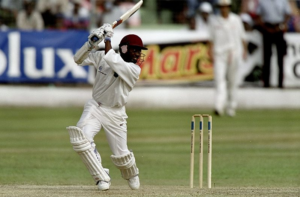Tackling crime from a public health perspective
-symposium to be convened in Trinidad and Tobago in April
ACROSS the region, the screaming headlines make for sombre reading and reflection on the cheap value now placed on life; on the irrationality of the use of guns at the drop of a hat; at the ease with which guns have become more accessible to almost anyone with nefarious intentions.
Loss of life from gun violence is increasing in the region. Drugs and human trafficking are fuelling the upsurge in crime and violence. Chair of CARICOM, Hon. Philp Davis, Prime Minister of The Bahamas, addressed those matters pointedly as an area for priority action, when he addressed the opening of the Forty-Fourth Regular Meeting of the Conference of Heads of Government of CARICOM.
“We should seek to strengthen our collective response to end the smuggling of guns and drugs,” he said.

“And we must do all that we can to wipe out the misery of human trafficking,” he told his colleagues and other delegates; calling for a region to operate within a framework of “the interests of us all.”
The Prime Minister added: “None of us will be safe until we are all safe. None of us will develop sustainably or securely if we leave our neighbours behind. None of us will truly prosper if our resources are forever taxed by the poverty and instability of those nearby. Going it alone will not work.”
The crime and violence situation has galvanised regional security stakeholders to search for different approaches to confront the problem.
One such approach that is gaining traction is tackling the matter from a public health perspective. It is not the first time the link is being made between regional public health and crime and violence. Back in 2020, when Prime Minister of Barbados, Hon. Mia Mottley, was chairing the Conference of Heads of Government, she had announced that a multi-disciplinary summit on security was being convened. She noted then that crime, violence and security were not issues that could “be believed to be simply the responsibility of governments,” particularly in the context of the Caribbean where they are “effectively public health disorders, public health diseases.”
At the conclusion of the 44th Heads of Government Meeting in The Bahamas, Prime Minister Davis announced that Trinidad and Tobago will host the high level multi-stakeholder meeting in April to address crime, particularly violent crime as a public health concern.
“The Heads of Government expressed deep concern at the current levels of violence being experienced in Member States. We recognise that to adequately address crime and violence, a holistic approach must be undertaken which addresses economic growth and prosperity, legislative, judicial, police and education reform,” he said at the press conference.
In October last year, institutions that participated in the CARICOM Security Cluster met in Trelawny, Jamaica, during a series of security-related meetings, including the 24th Meeting of the Council for National Security and Law Enforcement (CONSLE). The CARICOM Security Cluster comprises the CARICOM Implementing Agency for Crime and Security (CARICOM-MPACS), the Caribbean Public Health Agency (CARPHA), Caribbean Disaster Emergency Management Agency (CDEMA) and the Regional Security System (RSS). The October Security Cluster meeting focused on crime and violence as a public health issue preparato









